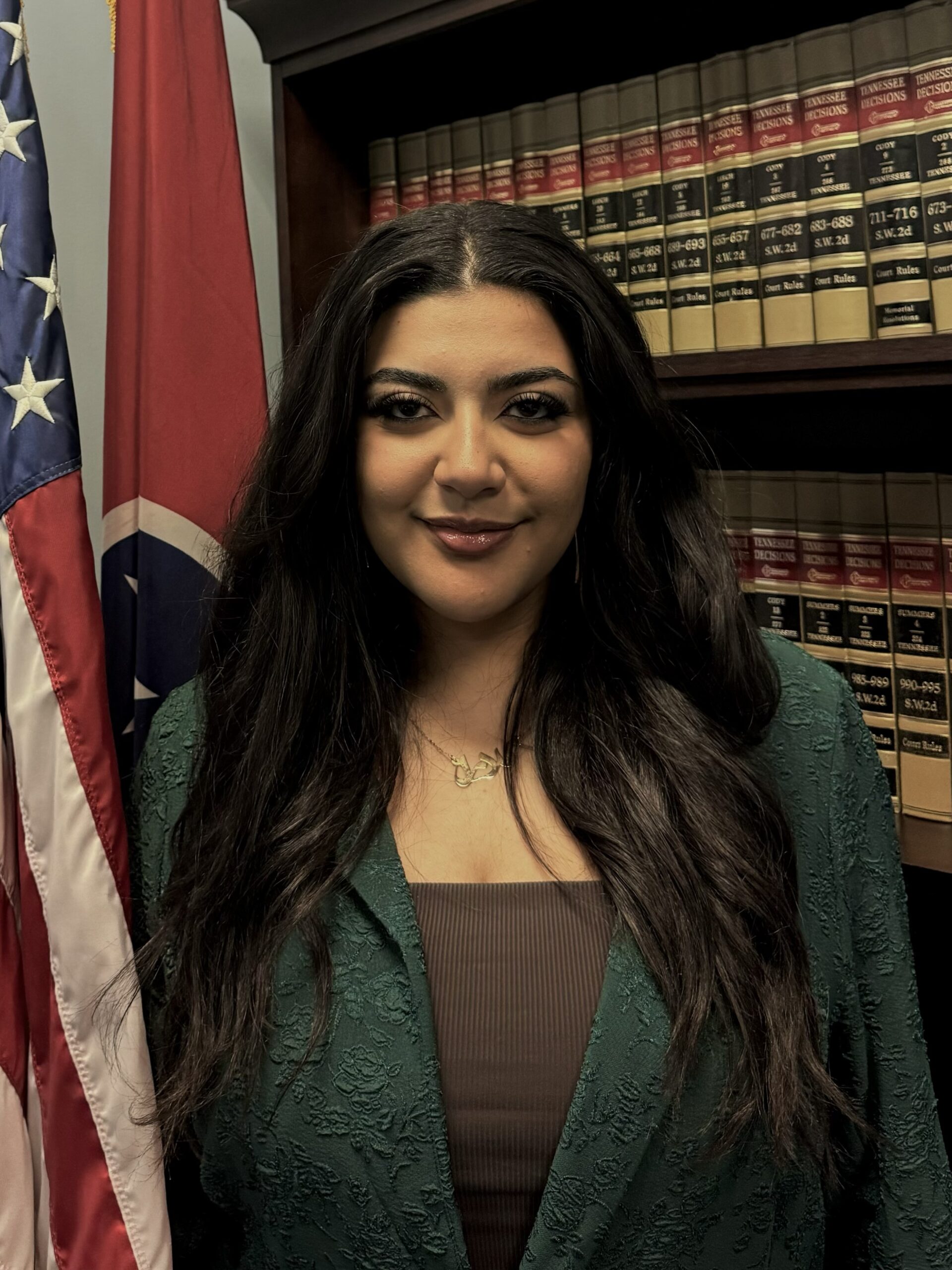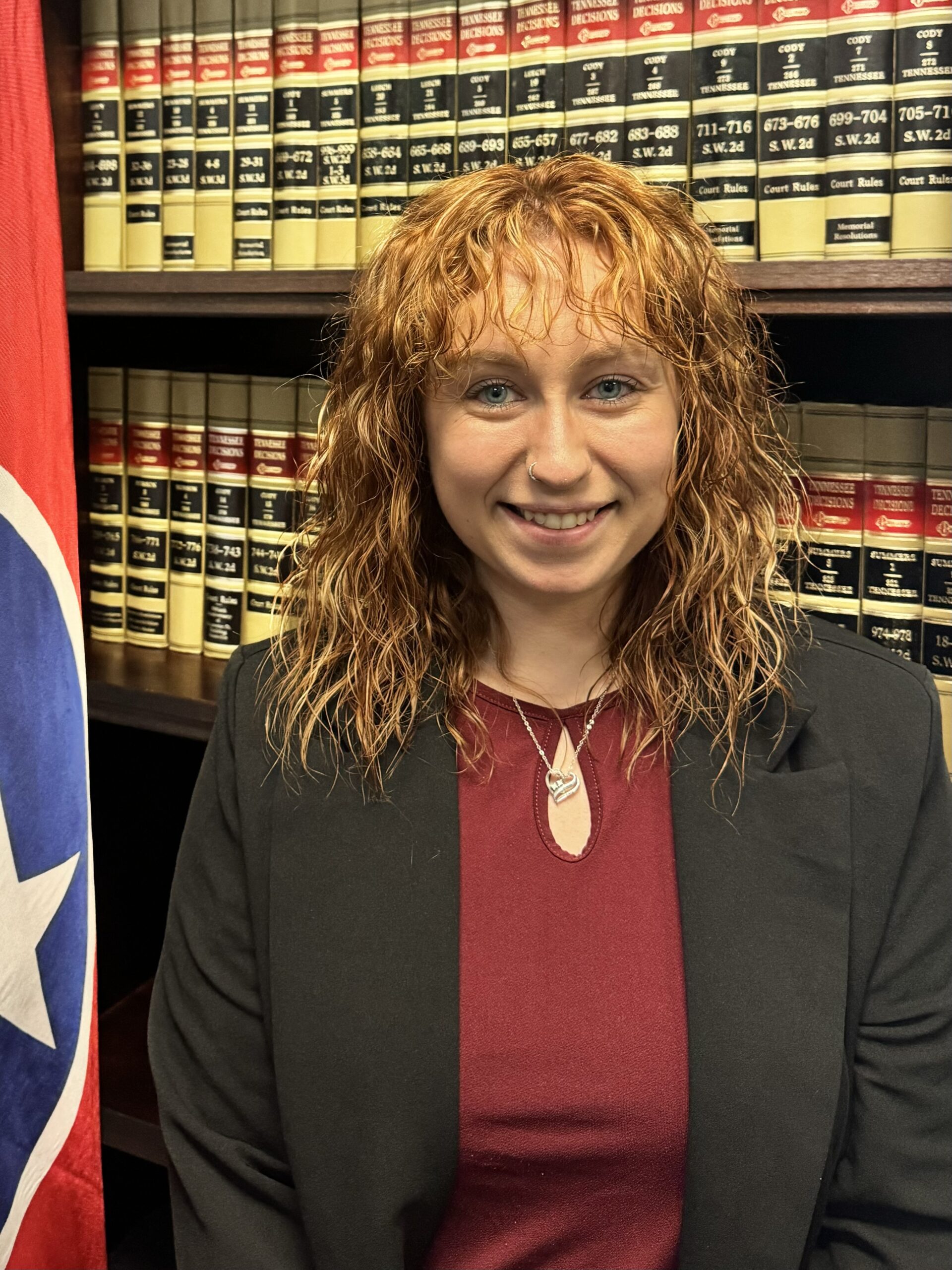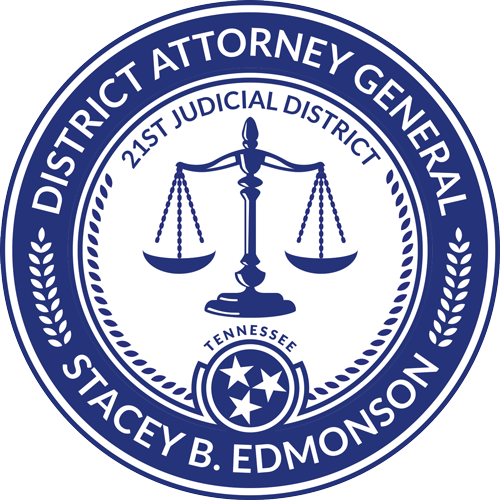Victim Services
Below is information and forms to help victims navigate the criminal justice system, including their constitutional rights, victim impact statement forms and injury compensation applications.
Criminal Justice Process
Arrest Warrant
A written order from a judge or magistrate that a person be arrested.
Bail/Bond Hearing
Once the defendant has been arrested, the court may hold a bail hearing, sometimes called a “bond hearing,” to determine whether the defendant should be held in the local jail until the defendant can secure the bail amount or the trial is complete. Bail is an amount paid or pledged by the defendant to make sure he or she will appear in court. Not every case will have a bail/bond hearing.
Preliminary Hearing
A probable cause hearing, usually in General Sessions court, to determine if there is reason to believe that a crime has been committed and that the defendant committed it. Attendance by the victim is not always required, but victims do have a constitutional right to be present at all hearings where a defendant is present.*
Court Decision
If it is determined that there is reason to believe a misdemeanor crime has been committed and that the defendant committed it, then the case can be settled by plea (step 8). If it is determined that there is reason to believe a felony crime has been committed and that the defendant committed it, the case is “bound over” to the grand jury (step 5).
Grand Jury
An independent group of private citizens who listen to information about the crime and decide whether the case should be formally charged. This is different from a jury trial, and the defendant is not present. The victim’s appearance is required only if subpoenaed or requested.
Indictment
If the grand jurors decide that a case should go to trial, they “return” an indictment or presentment known as “a true bill” charging the defendant with the crime(s) committed.
Arraignment
The first scheduled appearance by the defendant in Criminal or Circuit Court. A copy of the indictment returned by the grand jury is given to the defendant, who can ask that it be read, and the defendant will enter a plea of not guilty at this stage. An attorney will make an appearance on behalf of the defendant if retained or the court may appoint an attorney for the defendant if he or she qualifies for court appointed counsel.
Plea Agreement
This is a negotiated settlement that allows defendants to accept responsibility for their actions and for disposal of the case without trial. A plea agreement is usually an agreement worked out between the District Attorney’s Office and the defendant’s attorney which is then presented to the Judge. The defendant may agree to plead guilty to the crime(s) charged or to a lesser offense. The judge may accept or reject the plea. Additionally, a plea agreement can include an agreement on both the charge and sentence or just on the charges with a sentencing as mentioned in step 10. Although you will not have the final say as to what sentence is given, the District Attorney’s Office values and will consider your input. If no plea agreement is reached, the case goes to trial (step 9). If a plea agreement is reached, the case moves straight to sentencing (step 10).
Trial
The court proceeding in which the District Attorney’s Office presents the case for the State, attempting to prove beyond a reasonable doubt that the defendant committed the crime(s) as charged. The defendant may present proof to dispute the State’s claim but does not have to present any proof or testify during the trial. Usually, the defendant chooses whether a judge or a 12-person jury will decide the case. You should be present at the trial and may be required to attend if you were a witness to the crime.
Sentencing
After a defendant’s guilty plea is accepted or he/she is found guilty after a trial, the judge decides what happens. Oftentimes a plea agreement contemplates sentencing, but the judge still determines whether to accept the sentencing recommendation. The defendant may be sent to prison or jail, or the sentence may be suspended to probation, or a combination of the two. Probation means the defendant is not incarcerated as long as he/she does what the judge has told him/her to do and is typically required to report to a probation officer. Probation can be supervised or unsupervised. He/she may also be placed in other alternative programs such as recovery court, veteran’s court, mental health court, and TNROCS; required to do community service; pay fines and court costs; pay restitution; and take courses to help rehabilitate the offender. If a defendant receives diversion, that means that the defendant is entering a conditional plea upon certain conditions, and he/she will be allowed to ask the court to expunge their record upon completion of the required probationary period.
Victim’s Impact Statement
A victim may give a statement on how the defendant’s crime has impacted their life physically, emotionally, and/or financially at the time of sentencing. This is accomplished either through the presentence report or through statements made at the time of sentencing by the victim or sometimes by both. If the case is set for a sentencing hearing on a felony offense, the victim will be contacted by the presentence investigator with the Tennessee Department of Corrections Probation and Parole unit. The presentence investigator will send a victim impact statement form to be filled out by the victim and included in the presentence report. As the victim, you may give an additional statement at the time of sentencing if you choose.
*For more information on court hearing times and dates, please contact your local Criminal/Circuit Clerk.
Frequently Asked Questions
How do I know whether my case is in General Sessions, Circuit or Juvenile Court?
You should receive a subpoena telling you to appear in Court on a specific date and time. The color of your subpoena provides information related to the court proceedings for which you are subpoenaed, and which party issued the subpoena for you to appear. Green is for general sessions court. Pink is for circuit court. White is for juvenile court. Yellow is for grand jury. Blue was issued by the defense and their name and contact information should be on the subpoena as you will need to coordinate with the defense attorney.
For questions regarding Juvenile Court, please see the Juvenile Court website at
Juvenile Court & Services | Williamson County, TN – Official Site (williamsoncounty-tn.gov)
If you are a victim or witness in a Juvenile Court case, you may also contact our Assistant Victim Witness Coordinator assigned to Juvenile Court, Tiana Wells.
General Session Questions
What time do I need to be in court?
• 8:30 AM
Will the defendant be in the court room/ Will I have to see the defendant?
• Unless the defendant is in jail, they will have to appear in court and be in the court room. We have a safe space area that a victim witness coordinator can lead you to after you check in with them. The defendants do not have access to this room.
Will I be able to speak with the District Attorney?
• After you check in with the victim witness coordinator, they will let the District Attorney know that you are there, and you will have the opportunity to speak with them if you would like.
How long will I be in court?
• Expect to be there all day. Unfortunately, the cases are in no specific order. It depends on when the DA and defense attorney get the case to the judge, so your case could be taken up first thing in the morning, or in the late afternoon.
What do I wear to court?
• What to wear: business dress, suit, or pants, dress like you would for an interview or church
• What to avoid: jeans, shorts, tight or revealing clothing, clothing with holes
Where do I park for free?
• 4th Ave parking garage (all day other than bottom level is 1 hour or 30 minutes)- no backing into parking spots
• 2nd Ave parking garage (all day) -no backing into parking spots
• Street parking on 4th Ave (2 hours)
• Street parking on Church Street (all day)
• Street parking on 5th Ave (some 2 hours, some all day)
Where do I go when I enter the courthouse?
• For General Sessions Court: Downstairs (Court room A or B) and check in with a victim witness coordinator (there is a table in the atrium where you can check in with them)
• The victim witness coordinator can also take you to our designated safe space room once you check in.
Places to eat around the courthouse
• Pucketts, 120 4th Ave South, Franklin, TN 37064
• Meridees, 110 4th Ave South, Franklin, TN 37064
• Franklin Mercantile, 100 4th Ave North, Franklin, TN 37064
• Mellow Mushroom, 317 Main Street, Suite 100, Franklin, TN 37064
• Starbucks, 438 Main Street, Space 168, Franklin, TN 37064
• Grays on Main, 332 Main Street, Franklin, TN 37064
• Tazikis, 428 Main Street, Franklin, TN 37064
• Frothy Monkey, 125 5th Ave South, Franklin, TN 37064
Circuit Court Questions
What do I wear to court?
• What to wear: business dress, suit, or pants, dress like you would for an interview or church
• What to avoid: jeans, shorts, tight or revealing clothing, clothing with holes
Where do I park for free?
• 4th Ave parking garage (all day other than bottom level is 1 hour or 30 minutes)- no backing into parking spots
• 2nd Ave parking garage (all day) -no backing into parking spots
• Street parking on 4th Ave (2 hours)
• Street parking on Church Street (all day)
• Street parking on 5th Ave (some 2 hours, some all day)
Where do I go when I enter the courthouse?
• For Circuit Court: Upstairs (Court room C, D or E) and let your victim witness coordinator know you are planning to come, and they will come and meet you outside of the courtroom or look for you in the courtroom
Places to eat around the courthouse
• Pucketts, 120 4th Ave South, Franklin, TN 37064
• Meridees, 110 4th Ave South, Franklin, TN 37064
• Franklin Mercantile, 100 4th Ave North, Franklin, TN 37064
• Mellow Mushroom, 317 Main Street, Suite 100, Franklin, TN 37064
• Starbucks, 438 Main Street, Space 168, Franklin, TN 37064
• Grays on Main, 332 Main Street, Franklin, TN 37064
• Tazikis, 428 Main Street, Franklin, TN 37064
• Frothy Monkey, 125 5th Ave South, Franklin, TN 37064
Documents
Documents & Helpful Information
Court Process – PDF
Crime Survivor’s Guide – PDF
Our Children Guide – PDF
General Victim Resources – PDF
Resources & Brochures
Criminal Injuries Brochure – PDF
Resource Directory – Williamson – PDF
Safe at Home Brochure – PDF
TDOC Brochure – PDF
Victims Rights Brochure – PDF
VineLink Brochure – PDF
Statewide Resources
Criminal Injuries Compensation
If you or someone you know is an innocent victim of a violent crime committed in the State of Tennessee, the Criminal Injuries Compensation Fund may be a financial resource for you.
TN Voices for Victims
Tennessee Voices For Victims (TVFV) works on behalf of victims of crime in Tennessee. We are a central agency that enables crime victims across the state to network with one another and journey toward healing.
Offender Lookup
VINE is the nation’s leading victim notification network. It allows survivors, victims of crime, and other concerned citizens to access timely and reliable information about offenders or criminal cases in U.S. jails and prisons.
TN Domestic Violence Hotline
The Statewide Domestic Violence Helpline is a referral and counseling helpline for victims of domestic violence. Counselors are available 24/7 to offer referrals and supportive listening, and help with safety planning.
Victim Services Staff

Shannon Welch
Head of Victim/Witness Department
Major Crimes Unit

Trina Qualls
Deputy Victim/Witness Coordinator
Major Crimes Unit

Anne Margaret Weishaar
Paralegal/AVW

Tiana Wells
Assistant Victim/Witness Coordinator
Juvenile and Special Victims Units

Clara Samuel
Assistant Victim/Witness Coordinator
General Sessions Unit

Danielle Williams
Assistant Victim/Witness Coordinator
Domestic Violence Unit
